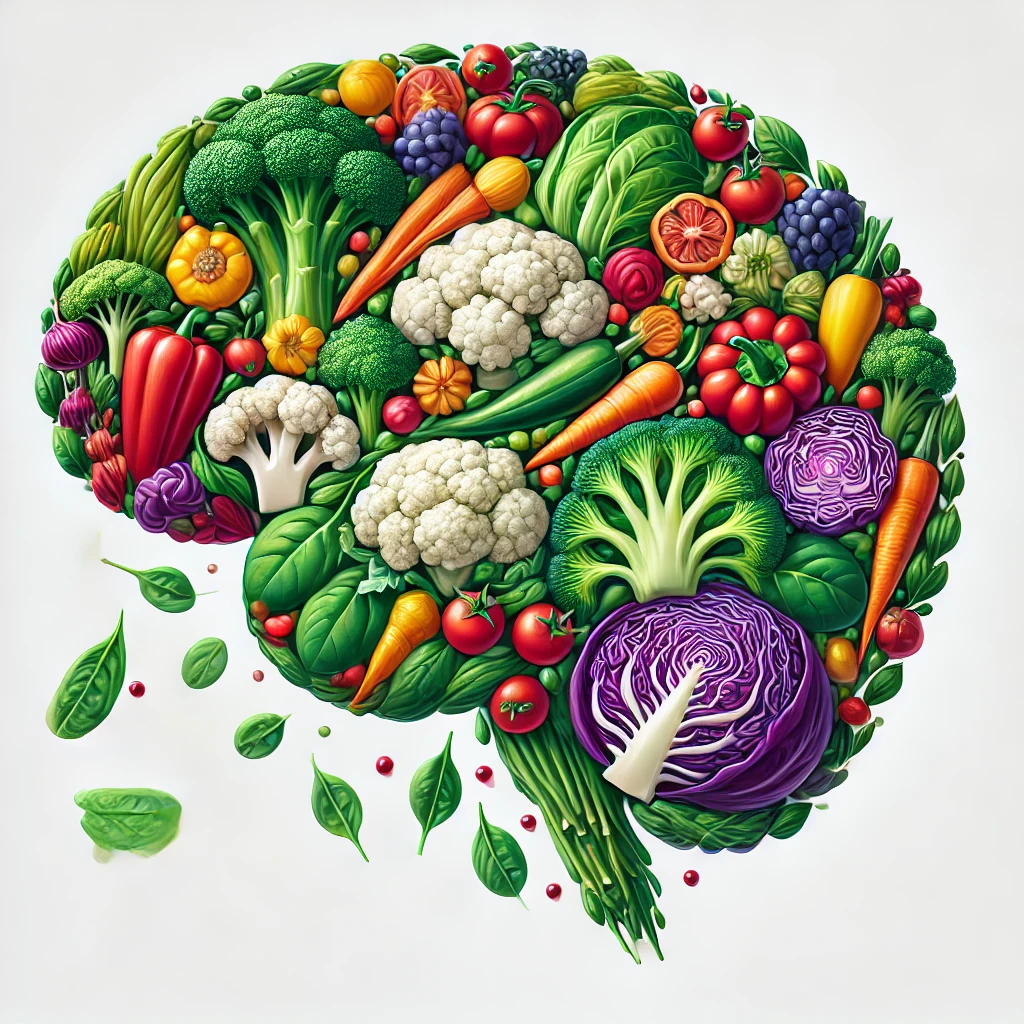
Preserve Your Brain with Nutrition and Lifestyle Changes
📆 The book club meets every Monday at 12:00 PM during our regular Meatless Monday Lunch, near the stairs on the 2nd floor of CCT.
Chapter 3 focuses on the prevention of stroke, Alzheimer’s, and other brain diseases through diet, lifestyle, and mindful choices. Dr. Greger emphasizes that what we eat can protect our brains from damage and decline.
🧠 Stroke Prevention
This chapter opens with startling statistics about strokes, a leading cause of death and disability worldwide. However, Dr. Greger provides a hopeful message: lifestyle changes, especially in diet, can significantly lower stroke risk.
- Fiber is Fundamental: Increasing your fiber intake by just 7 grams daily can reduce stroke risk by 7%. Aim for a daily intake of 25 grams of soluble and 47 grams of insoluble fiber. Whole plant foods like fruits, vegetables, beans, and whole grains are excellent sources.
- Potassium Power: Foods rich in potassium—like greens, beans, and sweet potatoes—can reduce stroke risk. Increasing daily potassium intake by 1,640 mg may lower the risk by 21%.
- Citrus Benefits: Regular consumption of citrus fruits can improve blood flow and potentially reduce stroke risk. They are packed with flavonoids, which have protective effects on vascular health.
- Sleep Matters: Getting 7-8 hours of sleep per night is linked with the lowest stroke risk. Too much or too little sleep can have the opposite effect, highlighting the importance of balance.
- Antioxidants to the Rescue: Plant-based foods are incredibly rich in antioxidants, which help protect the brain’s blood vessels from oxidative stress. Herbs and spices, in particular, are potent sources.
🧩 Alzheimer’s Prevention
The chapter then transitions to Alzheimer’s disease, a devastating condition affecting millions. Dr. Greger suggests that protecting our brains from Alzheimer’s begins with what we eat.
- Vascular Health is Key: Alzheimer’s has been strongly associated with poor blood flow due to clogged brain arteries. A plant-based diet, low in saturated fats, can help maintain good vascular health.
- Berry Boost: Consuming berries regularly may help slow cognitive decline by up to 2.5 years. Berries are rich in polyphenols, which have protective effects against brain aging.
- Juice Benefits: Drinking fruit and vegetable juices several times a week may lower Alzheimer’s risk by up to 76%. The polyphenols in these juices protect brain cells from oxidative damage.
- Polyphenol Power: Compounds in foods like berries and green tea can prevent the formation of harmful plaques in the brain, which are linked to Alzheimer’s.
- Saffron for Symptom Management: Fascinating studies have shown that saffron may be as effective as some Alzheimer’s medications in managing symptoms, offering a natural, plant-based alternative.
🚫 Lower Your AGE Intake
AGEs (Advanced Glycation End Products) accelerate aging and brain degeneration. The chapter emphasizes the importance of minimizing AGEs in your diet.
- Avoid High-AGE Foods: Meat and highly processed foods have the highest AGE content, especially when cooked with dry heat methods like grilling or frying.
- Moist Cooking Methods: When preparing animal products, choose moist-heat cooking methods like steaming or stewing to reduce AGE formation.
- Embrace Plant-Based Foods: Plant-based foods generally have much lower AGE levels, making them the ideal choice for those looking to protect their brains.
🏃 Exercise for Cognitive Health
Physical activity is another crucial pillar of brain health. Dr. Greger highlights how regular aerobic exercise can improve memory and cognitive function.
- Consistency is Key: Aim for 45-60 minutes of aerobic activity, 4 days a week. Studies show that this can help reverse age-related shrinkage in the brain’s memory centers.
- Aerobic Exercise Benefits: Regular exercise improves cerebral blood flow, preserves brain tissue, and supports cognitive function in individuals with mild cognitive impairment.
🌱 Protect Your Brain Holistically
Dr. Greger wraps up the chapter by stressing the importance of a holistic approach to brain health.
- Start Early: Brain damage from high cholesterol and blood pressure can begin as early as your 20s. Early prevention is vital.
- Plant-Based Diet Wins: A diet rich in whole plant foods is associated with a lower risk of cognitive decline and dementia.
- Manage Risk Factors: Controlling cholesterol and blood pressure significantly reduces Alzheimer’s risk, even for those genetically predisposed.
- Stay Active and Engaged: Regular physical activity and mental engagement can help maintain cognitive health throughout life.
🧘 Key Takeaway
The brain has a remarkable ability to heal and form new connections. A diet rich in antioxidants, regular exercise, proper sleep, and mindful lifestyle choices offer the best defense against strokes and Alzheimer’s. It’s never too late to take steps towards preserving your brain health and maintaining cognitive function. 🌿